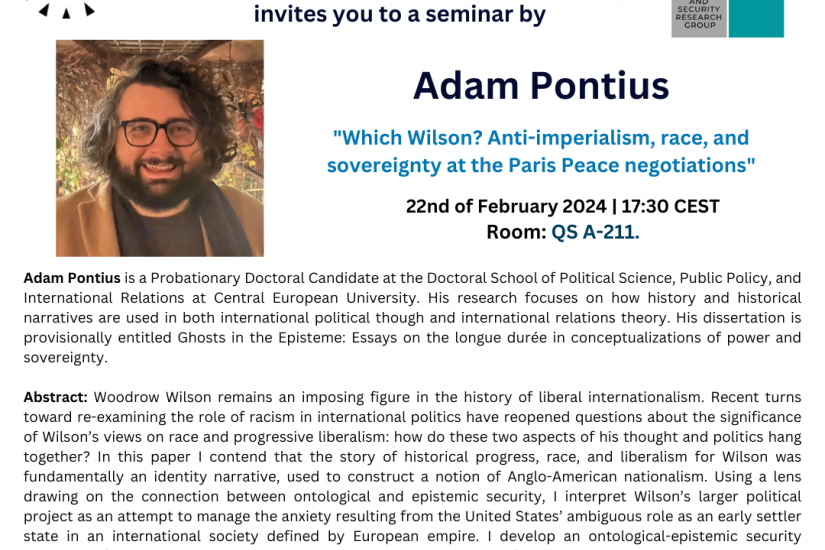
Adam Pontus is a Probationary Doctoral Candidate at the Doctoral School of Political Science, Public Policy, and International Relations at Central European University. His research focuses on how history and historical narratives are used in both international political though and international relations theory. His dissertation is provisionally entitled Ghosts in the Episteme: Essays on the longe durée in conceptualizations of power and sovereignty.
Abstract: Woodrow Wilson remains an imposing figure in the history of liberal internationalism. Recent turns toward re-examining the role of racism in international politics have reopened questions about the significance of Wilson's views on race and progressive liberalism: how do these two aspects of his thought and politics hang together? In this paper I contend that the story of historical progress, race, and liberalism for Wilson was fundamentally an identity narrative, used to construct a notion of Anglo-American nationalism. Using a lens drawing on the connection between ontological and epistemic security, I interpret Wilson's larger political project as an attempt to manage the anxiety resulting from the United States' ambiguous role as an early settler state in an international society defined by European empire. I develop an ontological-epistemic security theoretical framework based on the unique anxiety inducing position of settler states in the international system during what some theorists term "early modernity." By illustrating how Wilson depended on a notion of historical progress to animate both his liberalism and his views on race and national identity, I problematize key assumptions about modernity that result from a strict Giddensian interpretation of ontological and epistemic security. I also contribute to a larger conversation (re)interpreting historical liberalism by illustrating how Wilson's identity politics and progressive politics constituted each other.